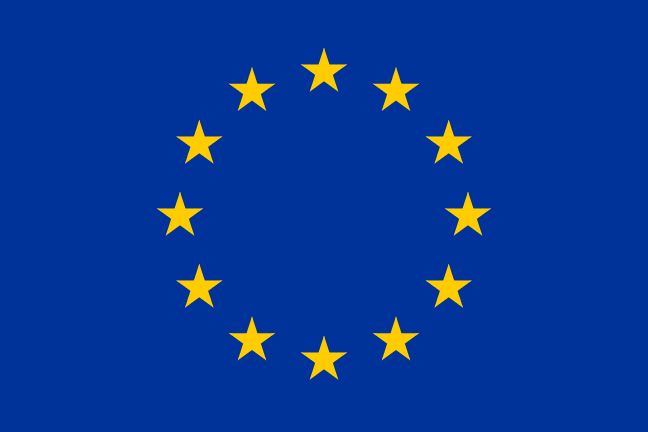Contents
Following a long tradition of similar workshops, the Sage days 100 workshop will take place in Bonn Germany, Mon 22 July 2019 - Sat 27 July 2019. It welcomes anyone who wishes to work with SageMath, from complete beginners to advanced developers. It will consist of tutorials, participant presentations and mostly free time to let participants work on their mathematical programming projects and get helped from more advanced users. The precise schedule of the workshop will be decided at the start of the workshop and adapted according to the participants' needs.
The afternoon of Wednesday 24th will be dedicated to a SageMath presentation at Max-Planck Institut (for students, PhD students, postdocs and professors). If you wish to be involved in this presentation, contact the organizer.
Practical information
Location
All week
Room 0.016 (ground floor, left of the main entrance) Institut für Informatik Endenicher Allee 19A Bonn
Special Wednesday afternoon event
Lecture Hall (third floor) Max-Planck Institut Vivatsgasse 7 Bonn
Links
Schedule
The first morning of the workshop, on Monday 22 July 2019, has a special schedule:
- 09:30--10:00 Welcome coffee
10:00--10:30 A SageMath and sage days panorama (by V. Delecroix)
- 10:30--12:30 Participant presentations + schedule organization + get started with Sage
- Lunch and afternoon: as all other days
Monday 22 July 2019 afternoon to Friday 26 July 2019 afternoon share a common schedule:
09:00--10:30 |
10:30--11:00 |
11:00--12:30 |
12:30--14:00 |
14:00--15:30 |
15:30--16:00 |
16:00--17:00 |
17:00--17:30 |
morning session |
coffee break |
hacking |
lunch break |
afternoon session |
coffe break |
hacking |
status report |
Hacking sessions aim to let people work on their own projects with experts helping/answering. The tutorial sessions will consist of
Monday |
welcome |
get started + packaging |
Tuesday |
package presentations (M.,V.,S.,J.) |
git (Vincent) |
Wednesday |
debugging, profiling, testing |
(optional) Max-Planck afternoon |
Thursday |
Cython |
SageMath development |
Friday |
? |
? |
Remaining tutorial sessions to be organized:
- databases
Sage packages
admcycles: tautological ring on M_{g,n} (Aaron Pixton, Johannes Schmitt, Jason van Zelm)
(Tuesday presentation admcycles_Bonn.pdf)
snappy: 3-dim hyperbolic manifolds (Marc Culler, Nathan Dunfield, and Matthias Goerner)
(presentation by S. Schleimer: snappy_intro.ipynb)
veerer: train-tracks and veering triangulations (Vincent Delecroix)
surface_dynamics: translation surfaces (Vincent Delecroix)
flipper: mapping class group (via flips in triangulation) (Mark Bell)
curver: mapping class group (via curve complex) (Mark Bell)
sage-train-track: free group automorphisms (Thierry Coulbois)
We will have 20 min presentations of each package emphasizing:
- What the package is useful for?
- What should I do if I want to use the package? ie, installation and first steps tutorials
- What is currently under active development?
- Wishlist features / possible research experimentations (with the hope that more people get involved)
Worksheets
- step-by-step programming (more Pythonic)
- Some math oriented worksheets
Graph theory and Python dictionaries (don't forget to also downloads euler.png and graph0.png
Computing modular group cohomology.ipynb: Computation of modular cohomology rings of finite groups with Sage; ModularCohomology.pdf Slides for presentation at MPI.
How_to_implement_new_algebraic_structures.ipynb: A tutorial on parents, elements, categories and coercion
Organization
Participants
- Vincent Delecroix (CNRS, LaBRI Bordeaux, France - MPIM Bonn, Germany)
Jonathan Zachhuber (Frankfurt, Deutschland)
Simon King (Jena, Germany)
- Mark Bell (UK)
- Luke Jeffreys (Glasgow, UK)
Johannes Schmitt (Zurich, Switzerland)
Samuel Lelièvre (Paris, France)
Frédéric Chapoton (Strasbourg, France)
Thierry Coulbois (Marseille, France)
Jean-Philippe Labbé (Berlin, Deutschland)
Sophia Elia (Berlin, Deutschland)
- Sebastian Oehms (Stuttgart, Germany)
Laith Rastanawi (Berlin, Deutschland)
- Vanessa Paluch (Bonn University)
- Shreya Kapoor (Bonn University)
- Julian Ritter (LIX Paris)
- Ingrid Irmer (MPIM, Bonn)
- Hankyung Ko (MPIM, Bonn)
- Saul Schleimer (Warwick, UK)
- Brian Winn (Loughborough University, UK)
- Hisatoshi Kodani (MPIM, Bonn)
Tam Nguyen-Phan (MPIM, Bonn)
Stavros Garoufalidis (MPIM, Bonn)
Christoph Lüders (Bonn University)
- Sophia Krix (Bonn University)
Broad mathematical thematics
Combinatorics, geometry and dynamics on real surfaces (complex curves). Here is a non-exhaustive list
- moduli space of curves, differentials, spin structures
- enumerative geometry, integral points in polytopes and (quasi-)modular forms
- geometry and dynamics of flat and hyperbolic surfaces
- braid groups, mapping class groups
Funding
The workshop is funded by OpenDreamKit 
With material help from the Laboratoire Bordelais de Recherche en Informatique (France) and the Computer Science Department at Bonn University (Germany).
Organizer
Vincent Delecroix (CNRS, LaBRI Bordeaux, France - MPIM Bonn, Germany)
